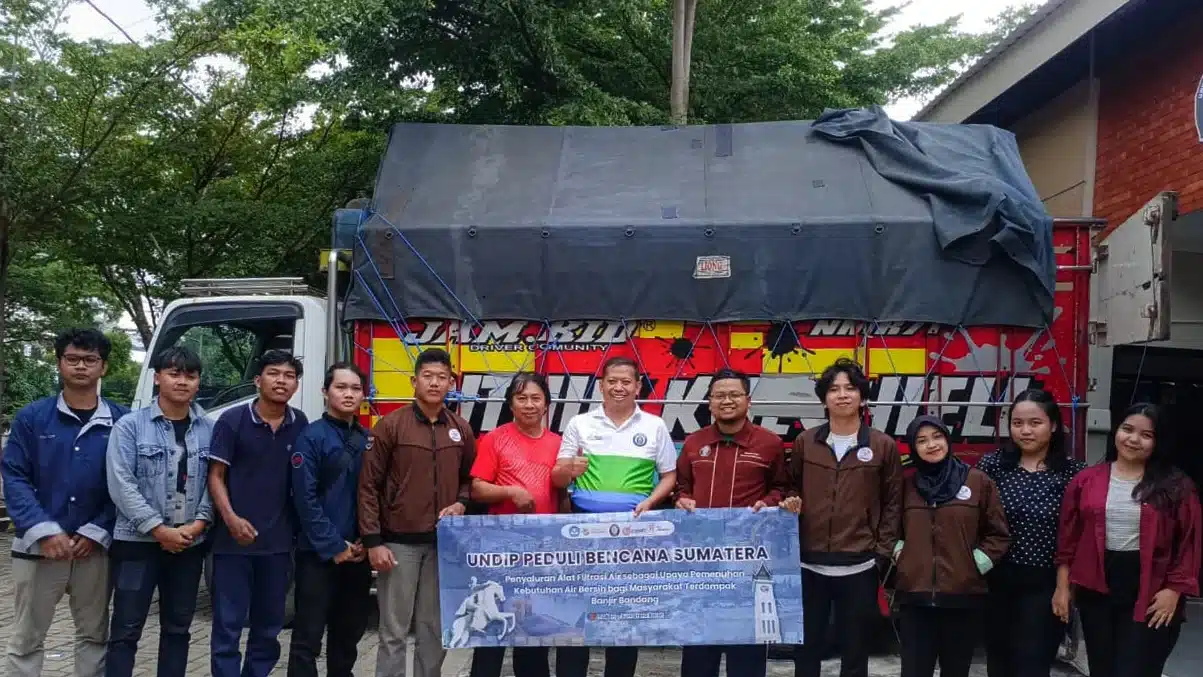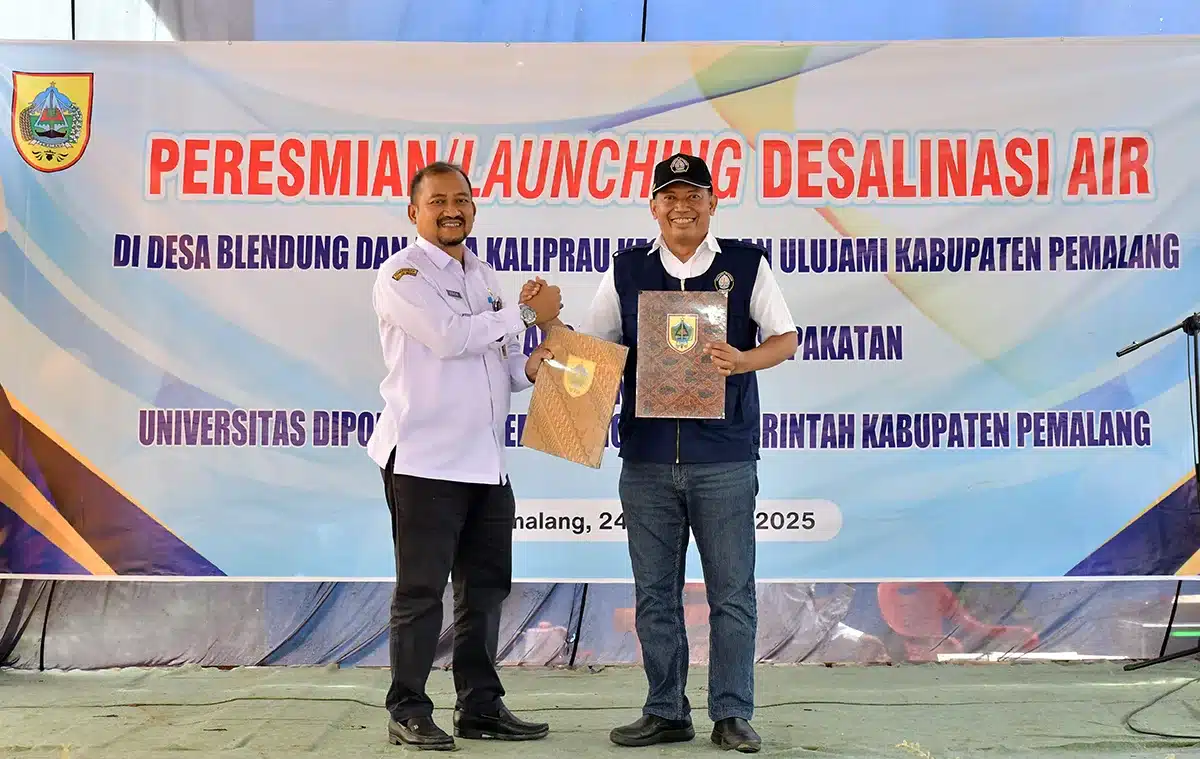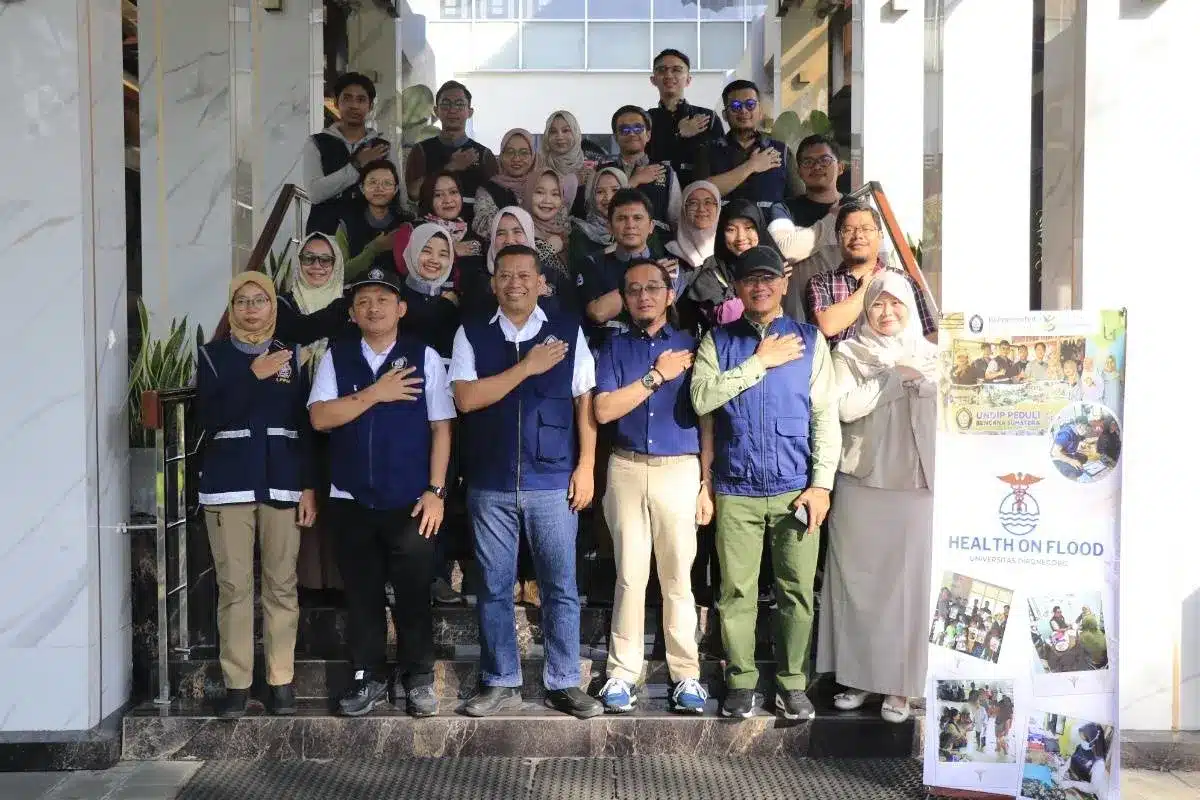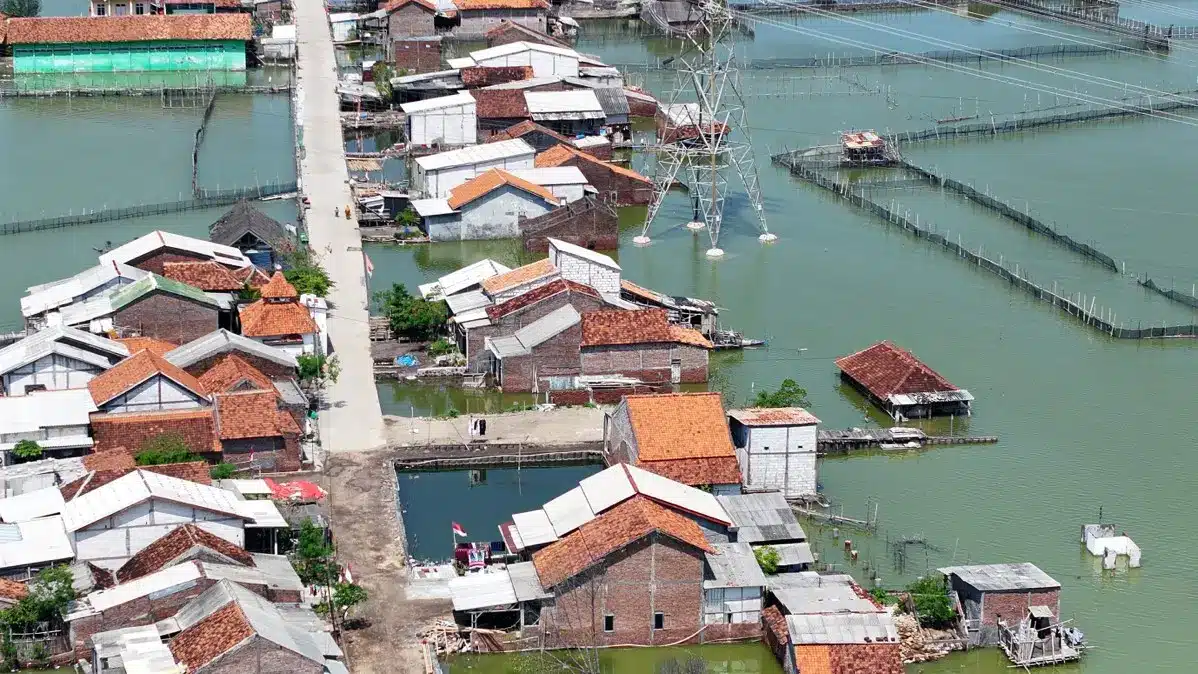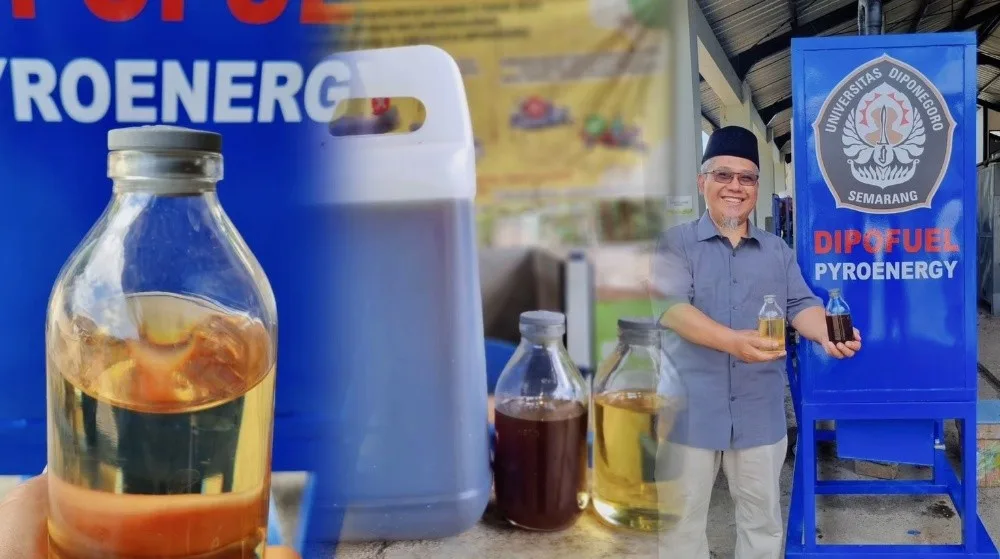“This achievement is certainly not the end of the struggle but the beginning of the struggle to be more productive in work and produce more brilliant ideas for our alma mater, nation, society and country. This is a good tradition, because the Dean initiated Doctoral graduates to provide socialization about thoughts resulting from a long process of contemplation and produce something that we need to follow up and apply it to the community. What we find do not just end up in a paper or dissertation, but let’s find a way so that we can apply good thoughts in the community and start it by providing socialization such as today’s activity,” said Vice Rector I of Diponegoro University, Prof. Budi Setiyono, S.Sos., M.Pol.Admin., Ph.D in the “Scientific Oration of the New Professors of FISIP Succeeding in the World: Socio-Political Governance towards a New Indonesia” (8/12).
Dr. Drs. Hadi Warsono, MTP., Dean of the Faculty of Social and Political Sciences (FISIP) Undip, in his speech said that having scientific oration activities would encourage others to continue their studies. “Studying at school is not easy, we will be faced with many situations and processes where all of these challenges must be faced by the Srikandi of FISIP who have graduated and hopefully become a driving force for others to continue their studies,” he said.
Four new professors from FISIP Undip are Dr. Dra. Sri Suryoko, M.Sc. (Lecturer of Business Administration); Dr. Dra. Hermini S., M.Sc. (Lecturer of International Relations); Dr. Dra. Dyah Lituhayu, M.Si. (Lecturer of Public Administration); and Dr. Supratiwi, S.Sos., M.Sc. (Lecturer in Governance Science). While the panelists for this event are Dr. Laila Kholid Alfirdaus, S.IP., MPP and Dr. Dra. Kismartini, M.Si and moderated by Dr. Nurul Hasfi, MA.
In her scientific oration entitled “Tracing Non-Product Output in Reaching Eco-Efficiency (Study on Small and Medium Enterprises of Tofu Business in Adiwerna, Tegal Regency), Dr. Sri Suryoko said the purpose of her research was to calculate the cost of NPO, measure the level of eco-efficiency and practice model clean production in business units. The results of the research conclusions are that the cost of NPO is quite good in the range of 10-19%, the achievement of the level of eco-efficiency in making tofu in the samples studied in Pesalakan, every tonne of raw soybean tofu emits 2.73-5.24 tons of CO2 equivalent per year. The measurement of NPO meters can show the occurrence of inefficiencies, however, the implementation of clean production practices is not easy for SMEs businesses to do alone because of their limitations.
Dr. Hermini discussed about “Democracy Leading to Impeachment: The Complexity of Local Political Leadership in Temanggung in the Period of 2003-2008”. “Internal and external factors of the Regent have caused chaos in the government in the form of civil bureaucratic disobedience. Local elites with their respective interests made the Regent a common enemy, finalizing the Regent’s inability to manage the complexities of leadership with impeachment. This research results in a new conception of impeachment studies, namely self-interest causes disobedience-impeachment or vested interest let disobedience-impeachment,” she explained.
While Dr. Dyah in her scientific oration entitled “Challenges of Bureaucracy in Building Anti-Corruption Behavior” conveyed that her research background was corruption as an enemy to good and professional governance as well as an enemy to humanity. Corruption behavior that occurs in the bureaucracy can not be separated from the structure in the bureaucracy and the attitude of the individual himself. Corruption that occurs proves that subordinates in principle must do what is ordered by superiors so that cases of bribery to legislative elements must be carried out. The reason used by superiors to give money to legislative elements is to accelerate the legislative process.
Dr. Supratiwi presented the results of her dissertation on “Regional Autonomy as Common Policy Instrumentation: Learning from Difficulties in Managing Environmental Issues”. This study aims to show the limitations of thinking about regional autonomy which was still in the mainstream position (as a discretionary authority) and proposes the idea of regional autonomy as a policy framework, namely as a thorough policy instrumentation in order to achieve policy objectives (developing the region without exceeding the carrying capacity of nature).
“In conclusion, this study confirms the unpreparedness of the government’s study, particularly the study of regional autonomy, to guide Indonesia’s journey to broad autonomy, and at the same time take advantage of the given autonomy to carry out more reliable policy-making to address environmental issues. Authority or autonomy is not carefully instrumented so that in policy making, they ignore the consideration of ecological values. Space permits are easily given in order to pursue regional income, as a result the environmental carrying capacity is exceeded and the disaster is being a big risk,” concluded Dr. Supratiwi. (Lin – Public Relations)


